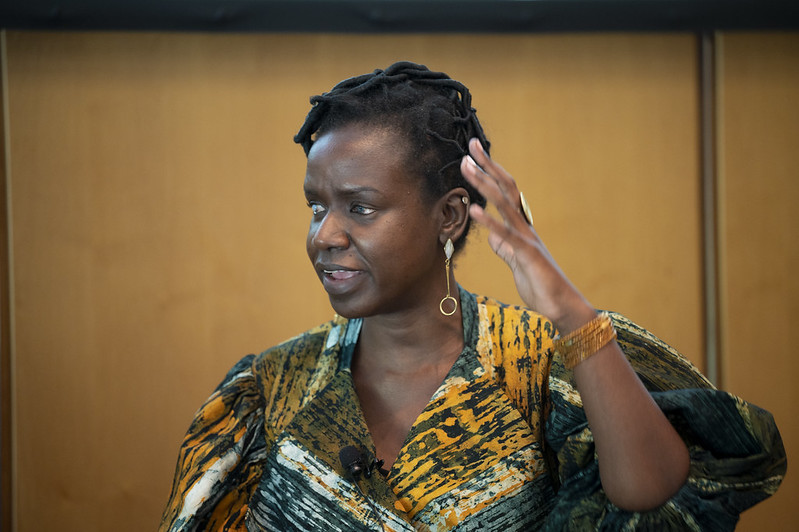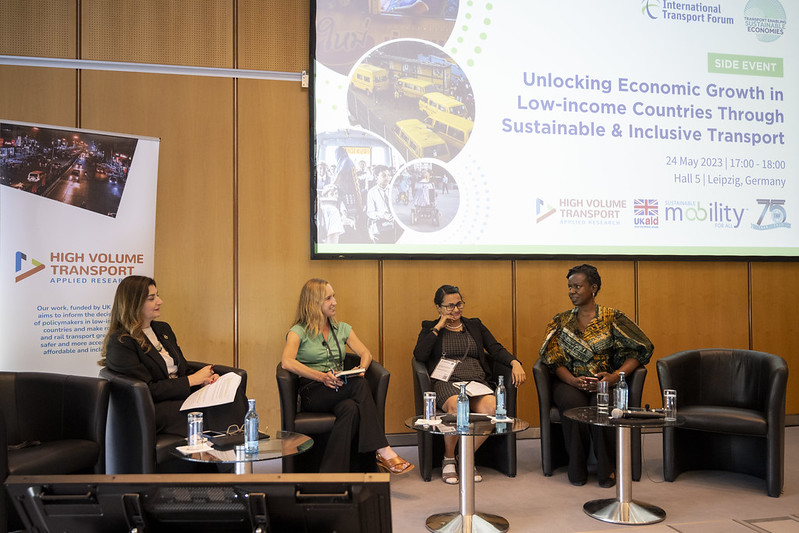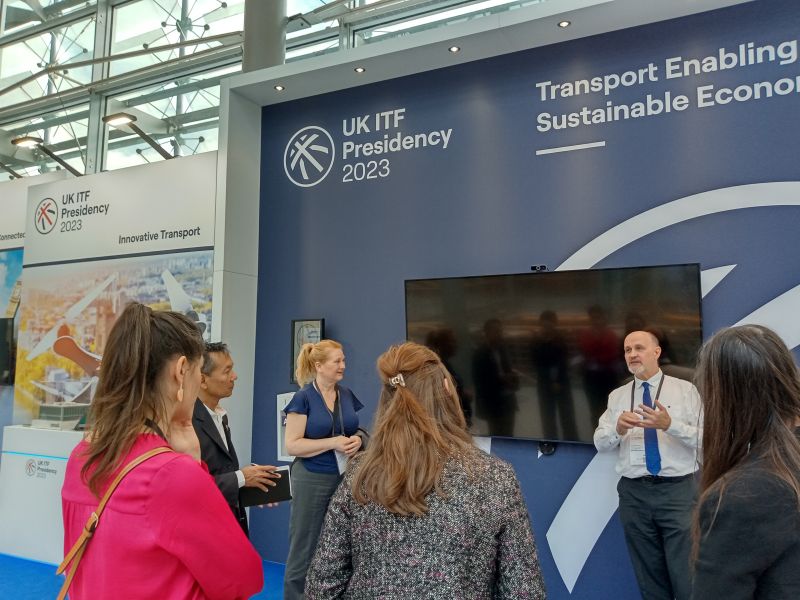At this year’s International Transport Forum (ITF) summit in Leipzig, Germany, HVT put a spotlight on achieving inclusive and greener transport as a key to supporting economic growth in low-income countries (LICs).
Speaking at a HVT side event, Senator Crystal Asige, from Kenya, who lives with a visual impairment, described how, in Africa alone, 7% of GDP is lost due to transport being inaccessible to persons with disabilities.
“With a population of 1.2 billion people living with disabilities globally, that’s a lot of people we are marginalising,” she said. “When you design a city for persons living with disabilities (PLWD) to use and access you are designing it for everyone to use and access. So, if we start thinking about this as a baseline, then maybe we will find solutions that are all encompassing as well.”

Inclusion was a strong topic at the side-event hosted by HVT with the International Road Federation (IRF) and the Sustainable Mobility for All (SuM4All) initiative. Sonal Shah, founder of The Urban Catalysts, brought gender and inclusion into the conversation with shocking statistics regarding women’s numbers in the labour force:
“20 trillion dollars is the amount we could boost our economic growth by 2050 if women were educated at the same levels as men and held the same number of jobs,” she said.
“Women’s labour force outcomes are linked to the level of public transport connectivity, access, safety and affordability,” she said, citing a World Bank study highlighting the link between public transport and its availability and quality with women’s labour force participation.
The panel debate entitled Unlocking economic growth in LICs through sustainable and inclusive transport was moderated by IRF Director General, Susanna Zammataro, and coalesced the latest findings of several HVT projects around the role of transport as an enabler of economic growth that also drives environmental and social sustainability.

Cities in LICs are the most rapidly growing and youngest cities in the world, and they’re changing fast. This offers immense opportunities as well as challenges for the development of transport systems to meet the needs of the people and the economic growth, as well as meeting the urgent progress needed to address climate change.
Heather Thompson, CEO of the Institute for Transportation and Development Policy (ITDP) spoke about transit-oriented development (TOD) and compact cities in lower income neighbourhoods:
“The core of making our cities truly sustainable, truly equitable and truly accessible means that they have to be developed in compact ways,” she said. “If more people can access transport, that gives them access to opportunity, to healthcare, to jobs, to all the things that are fundamental to a good life. This brings economic growth, so it’s also good for cities, for economies and for governments.”
Susanna closed the panel discussion by stressing the need to change the narrative around access and economic opportunity:
“We have to sell these concepts by packaging them differently,” she said. “Addressing those issues means delivering on economic growth, social inclusion and so much more.”
HVT research was also highlighted as part of the UK Presidency of the ITF summit this year, that focused on the key areas of greener transport; innovative transport; connected transport; inclusive transport and safe and resilient transport.
At a session on the power of data, Anne Joselin of the Foreign, Commonwealth and Development Office (FCDO) highlighted HVT research by the University of Southampton and the Oxford Programme for Sustainable Infrastructure Systems. The decision support tool launched earlier this year models the effects of climate hazards and the costs of damage reparations against building climate resilient infrastructure.
At the UK presidency stand, Kevin Blacktop, Head of Delivery at the Birmingham Centre for Rail Research and Education, University of Birmingham (BCRRE) presented a spotlight session on ‘Novel Traction Systems for Sustainable Railway Futures in LICs‘, an HVT project which launched HydroFLEX, the UK’s first mainline-approved, hydrogen-powered train at COP26. Kevin’s presentation illustrated the ways in which hydrogen could transform rail travel and support infrastructure development in low-income countries (LICs).

This year’s ITF summit brought together more than 1400 business leaders, researchers, activists and policy makers from more than 80 countries to discuss the future of transport and mobility around the world. It is acknowledged to be the world’s largest gathering of transport ministers, a vital opportunity for shaping the future of the world’s transport networks.
Cover image courtesy of International Transport Forum

